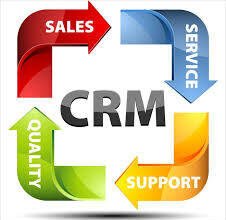If we only knew what we know.
Years ago, while working inside a global Fortune 500 company, the CIO voiced these words and they stuck with me. “If we only knew what we know.”
He was referring to the silos between divisions and product lines and ideas. He was pointing out that divisions were not talking to one another and not presenting “one company” to the customer. “If we only knew what we know” was meant to highlight the missing connections and relationships within the company. The collective knowledge was powerful, however an inability to get beyond the structures that get in the way of being collaborative was stifling the company’s ability to better serve customers and grow revenue.
This story came to mind because I listened to the live broadcast of the Enterprise 2.0 Conference this morning. The opening keynote, JP Rangaswami, CIO and Chief Scientist, BT Design, put forth the rhetorical question,
Are we seeing a shift from the individual to the collective? Are we seeing the growth of the collective?
He spoke of trends driving this change.
- New environment. Businesses used to be hierarchies of products and and customers. It’s now a network …
If we only knew what we know.
Years ago, while working inside a global Fortune 500 company, the CIO voiced these words and they stuck with me. “If we only knew what we know.”
He was referring to the silos between divisions and product lines and ideas. He was pointing out that divisions were not talking to one another and not presenting “one company” to the customer. “If we only knew what we know” was meant to highlight the missing connections and relationships within the company. The collective knowledge was powerful, however an inability to get beyond the structures that get in the way of being collaborative was stifling the company’s ability to better serve customers and grow revenue.
This story came to mind because I listened to the live broadcast of the Enterprise 2.0 Conference this morning. The opening keynote, JP Rangaswami, CIO and Chief Scientist, BT Design, put forth the rhetorical question,
Are we seeing a shift from the individual to the collective? Are we seeing the growth of the collective?
He spoke of trends driving this change.
- New environment. Businesses used to be hierarchies of products and and customers. It’s now a network of relationships and capabilities. It’s now mobile, dispersed teams
- New generation. Today’s workforce is accustomed to new ways of interacting and sharing knowledge.
- New tools. New tools are Wikis, blogs, online communities, enterprise social software, social networking, and so on.
His message—collaboration is emerging as a top priority for business leaders to achieve the growth and innovation they want. The purpose of Enterprise 2.0 collaborative technologies is to help organizations move faster—to give employees access and input to more information, content, and expertise than ever before. Innovation is unleashed when human interaction, when people are empowered. And at the heart of innovation is an innate human ability to make ideas real. It’s not the technology, it’s the people.
I like that message. Enterprise 2.0 technologies are not about the “technology”—it’s about the people that use the technology to create, to innnovate, to share, to collaborate. The real power of Enterprise 2.0 technologies is the connection to one another. Good stuff.






